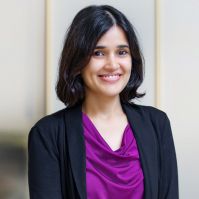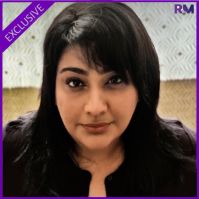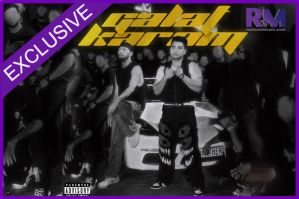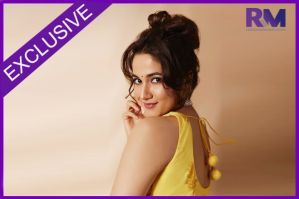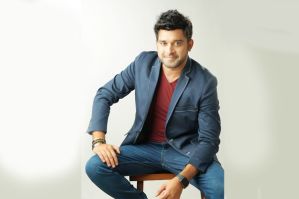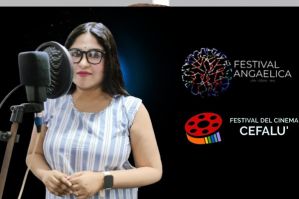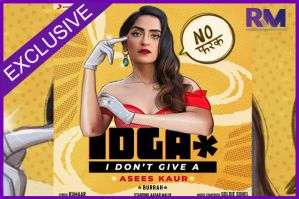Prem Joshua - 'Music is a medium to find your inner self'



Multi-instrumentalist Prem Joshua left home when he was 18 years and came to India. Born in Germany, his journey took him to countries like Greece, Turkey, Afghanistan and India. Inspired by the music of Pt Ravi Shankar in his younger days, Joshua developed a liking for the sitar and later learnt it from from Ustad Usman Khan – after his association with India for 30 years, this affable musician never misses coming to India every year, no matter what.
Prem Joshua also heads a four member fusion band by the same name. Prem Joshua plays the Sitar, Bamboo Flutes, Soprano Sax, Dilruba and Vocals. Chintan Relenberg plays Keyboards, Darbouka, Tabla, Loops and vocals. Raul Sengupta on Tabla, Percussion and Vocals and Satgyan Fukuda on Bass guitar, Percussion, Vocals.
The easy-going musician spoke to Chirag Sutar from Benares on his band's journey, spirituality, instruments and of course his new album 'In Concert' to be launched by Music Today shortly.
Excerpts-
Most of the music on the recent albums is live recording. As a band, do you prefer this to 'recording' at studios? Why?
It's just offers a different value (live recording). Studio recordings can have a certain expression, but live recorded music gives you a different feeling. Live music shows our craft as musicians.
Tell me about some of your most memorable gigs?
Many times as musicians we play very well, but there's no connection, no spark. But there are those occasions where we as musicians are able to make a 'connection' with the audience – no matter how we play. On such occasions, when music becomes one with the audience are the most memorable gigs.
Many Indian classical musicians have inspired you. Are you thinking of collaborating with any of them?
Right now, I am not looking for any collaboration because as a band, we are really enjoying our space.
What are the challenges one faces while creating 'fusion' music?
Well, my western background is that of jazz and rock music. The reason I do fusion is because 'I love fusion' – It comes naturally to me. We like to unite different cultures and their sounds. One needs 'sensitivity' to do fusion, otherwise it becomes a 'hotchpotch'. Fusion comes naturally when you respect culture and sounds and give listeners something new, contemporary and fresh.
Purists argue that you should not create 'fusion' – it's detrimental. However, the fact is that Hindustani music has also been to a great extent influenced by Persian music. So, Hindustani music is actually 'fusion' music since it has its roots in both India and Persia. Without the influence of Persian music, Hindustani music would not have been where it is today.
As musicians we have the duty to translate the music with time. We have to make music for people who are living 'now'. The world moves together and similarly, music should also move.
How do you go about your on-stage performances? Is it an out-an-out jam session up there?
No, it's not a jam. We do have our space to improvise in our tracks, but the music is 'very arranged', unlike a jam session where you don't really know what the other musician is playing.
Your music is greatly influenced by Indian spirituality. Can you tell me about that?
In a way, it's all very interlinked. I feel very drawn towards India; the deep wisdom that India carries is one of the reasons why I come to India often. When I land in India I get a unique feeling – Indian soil is soaked by the wisdom of the sages and saints. I can just go on and on… but for me, music is a medium to reach your inner quality and it certainly has more value than music that just 'entertains'.
The recording/CD sales business is dying. 'Live' concerts are the best option for musicians today. As a performing musician what are you thoughts?
It is the only way out. We musicians have to survive, it's sad because the value that a musician puts in the records doesn't get recognised anymore – Piracy is so rampant.
I used to record albums before and also do live concerts. But now – I 'must' do live concerts. Many excellent musicians, both Indian and International are out of jobs these days.
You are a multi-instrument player. How do you keep in touch with all those instruments?
Well, I try to practise all the instruments as much as I can. But I make it a point to play the sitar daily. It's such an instrument that if you don't stay in touch, you can easily lose your grip over it. My instruments are like my kids, I don't have any kids – my sitar goes wherever I go.
As a band, did you go through line-up changes?
My band has been touring since the late 80's, I am the only surviving original band member (laughs). But from the past three and half years there has been continuity and stability and as musicians we have been going deeper and deeper.
Is 'Prem Joshua' your real name?
My family name is Luke, which I don't use. I think 'Prem' or love is what we all need in this age, so I stick to this name (laughs).
Tell us about an unique instrument that you own.
Doduk from Armenia is my favorite instrument. Though I don't play it on concerts, I love the way it sounds. Its one of the most beautiful instruments I own.





